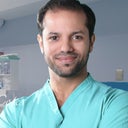we do this all the time and its very safe, you need to go to someone experienced.







